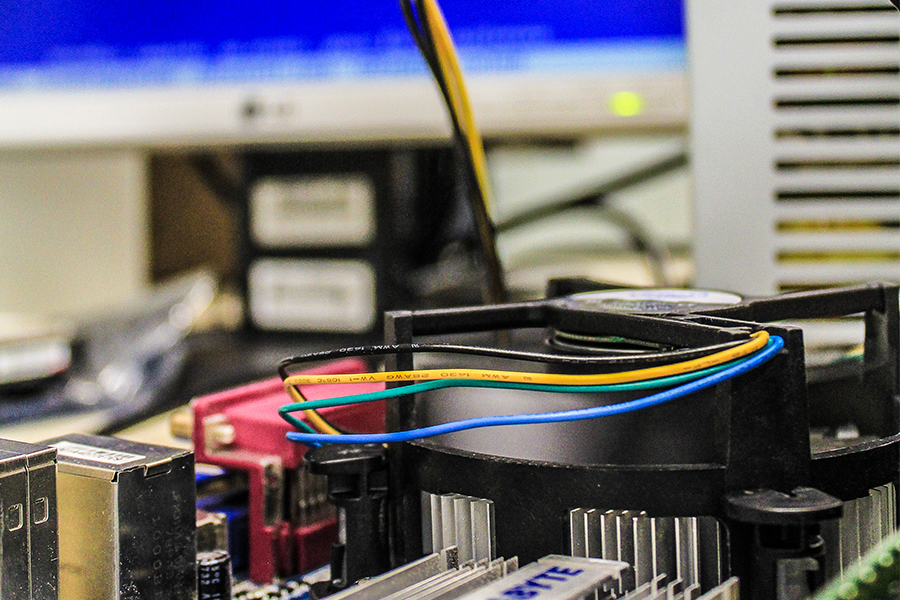Offered in partnership with the São Carlos School of Engineering (EESC)
NUMBER OF PLACES: 50
LENGTH: 5 years (full-time)

The objective of the Computer Engineering program is to train fully qualified professionals to carry out activities related to areas of interface between electrical engineering and computer science. Following the rapid changes observed in various sectors of economic activity, students are offered complementary courses to improve their professional profile in embedded systems, communications and mobile computing systems, advanced computational systems and robotics. The proposal considers a differentiated profile regarding various computer engineering courses already running in the country and makes use of the vast pedagogical, scientific and technological experience of the EESC and the ICMC.
WHAT WILL YOU STUDY?
You will be working closely with boards and circuits. There are courses in Electrical and Electronic Engineering, Chemistry and Physics. You can also specialize in some academic majors such as robotics and embedded systems. For example, inside a car there is a system that controls it, an embedded system, which can be found in almost all the machines we use
The syllabus has a basic core comprising some courses that include Physics, Mathematics, Chemistry, Humanities, Administration and Economics. The vocational core provides a profile strongly based on Electronic Engineering, Computing and Interface areas, and includes content from the areas of: Digital Signal Processing, Microelectronics (analogue and digital integrated circuit design), Digital Circuits, Robotics and Automation, Telecommunications, Software Engineering, Distributed Computing Systems, Computer Graphics, Databases, Hypermedia and Multimedia and Mathematical Programming.
The specialization core studies consist of optional courses, including the following academic majors: Embedded Systems, Communications and Mobile Computing Systems, Advanced Computational Systems and Robotics.
WHAT CAN YOU DO?
As a Computer Engineering graduate, you will be able to design digital, computerized systems and even robots. Another possibility is to manage computer networks in large companies and provide them with assistance, or even, develop applications and also work in the field of industrial automation. The areas of activity can be found in the scientific and technological interface between Electrical/Electronic Engineering and Computer Science. You will be able to work in Electronic Engineering, Computing, Telecommunications, Microelectronics, Automation, Information Technology, Voice, Sound and Image Processing, Artificial Intelligence, Robotics, Software Engineering, Computer Networks, Distributed Computing Systems, Parallel and High Performance Computing, Databases and Computer Aided Tools.
Computer engineers stand out for their versatility combined with technical and scientific knowledge: knowing a certain subject well does not suffice; professionals need to know how to transmit it and know how to apply it in solving problems. Computer engineers can work in various segments and this pushes them to constantly be updated in technical and scientific subjects. The versatility of the training enables computer engineers to work both in hardware and software, making them highly sought after professionals on the market. Generally, the market recognizes the value of computer engineers, which is reflected in climbing the career ladder.





